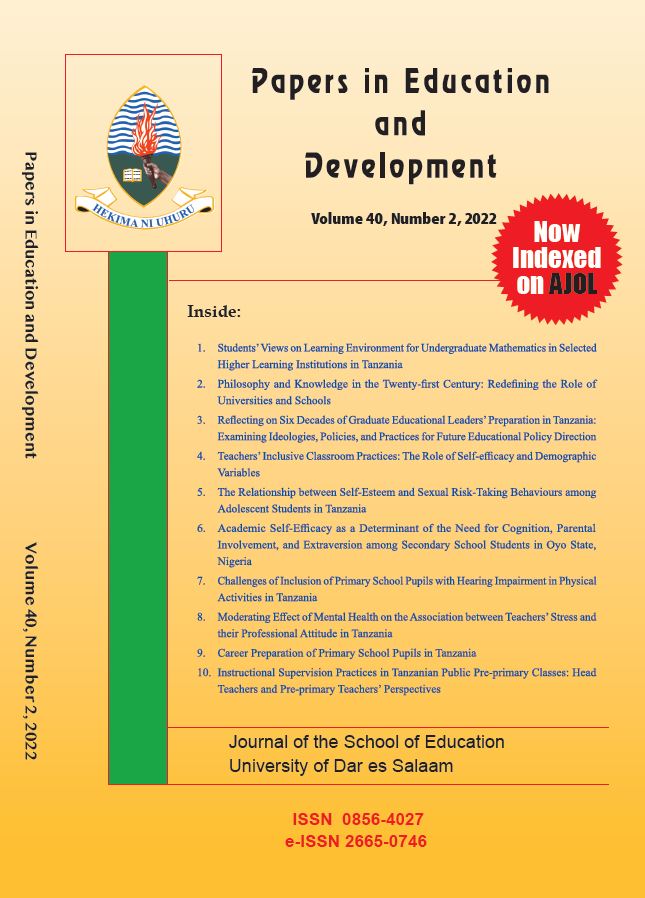Philosophy and Knowledge in the Twenty-first Century: Redefining the Role of Universities and Schools
Abstract
Abstract
Philosophy and knowledge are indispensable in the process and practice
of education. The essence of education is to train human mind. Education
enables one to reason and think critically using mind. Knowledge is essential
in the process of education. What kinds of things can be known? How can it
be said that a learner knows something? These questions make knowledge
one of the most fundamental aspects of philosophy and education. This
paper reviews literature to examine what knowledge is and what it ought to
be in the 21st century. It employs speculative approach, conceptual analysis
and prescriptive research methods in philosophy to expound the creation
of knowledge that will be relevant for the 21st century society. The paper
has revealed that there are educational initiatives in place that are being
taken in the 21st century to set an educational agenda that meets the local
and global standards/needs. This implies that universities and schools
have an increased role to play in the 21st century including training and
recruiting learners, who can, at different levels, demonstrate creativity,
critical thinking, communication and collaboration. The paper recommends
that knowledge creation must extend to include the physical, mental,
emotional and social domains of learning as required in the 21st century.
Keywords: collaboration, communication, critical thinking, education,
knowledge

